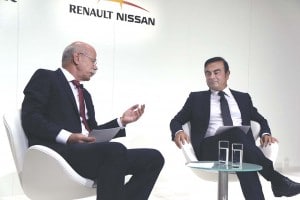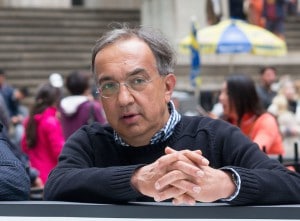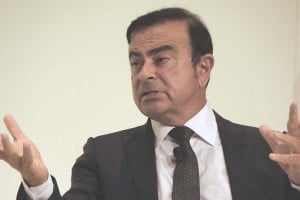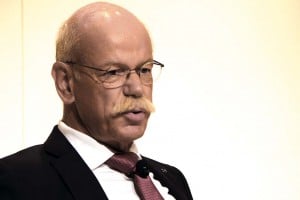
Increasingly frustrated in his bid to merger with General Motors, Fiat Chrysler Automobiles CEO Sergio Marchionne might consider an alternative in his bid for better economies of scale.
At a media briefing called to discuss the results of their own, six-year partnership, Daimler AG Chief Executive Dieter Zetsche and Renault/Nissan CEO Carlos Ghosn said they would be open to the possibilities of adding FCA to their successful alliance.

“Any single opportunity we have in front of us…we will entertain,” said Renault/Nissan’s Ghosn.
For his part Daimler’s Zetsche took an only slightly more cautious tone, saying that before adding another member to their exclusive club, “You have to weigh the benefits you might obtain against the additional complexities. There’s some breaking point.”
(Nissan firmly committed to aggressive plans for autonomous driving, battery cars, says Ghosn. Click Here for that story.)

The fact that Daimler and the former Chrysler Corp. had a nasty break-up after a failed “merger of equals” was left unsaid, but could make it more difficult to bring the new Fiat Chrysler into the fold.
What begin as a modest experiment to see if three very different automakers could find common ground on a handful of projects has grown into a broad-reaching alliance. With the recent groundbreaking in Aguas Calientes, Mexico on a plant that will soon build both Infiniti and Mercedes-Benz luxury cars, there are now 30 different ventures covered by the alliance between Daimler and Nissan/Renault.
And more are likely to follow, the two executives said. That could eventually include sharing efforts to develop autonomous vehicles – something that Nissan has taken a lead in. Daimler, meanwhile, could assist the Japanese maker’s luxury brand, Infiniti, in developing new battery-based models. The new Infiniti Q30 launched this week in Frankfurt is based on a platform originally developed for Mercedes-Benz models such as the compact CLA and GLA.
(VW, Audi plan to “electrify” their entire line-up. Click Here for that exclusive report.)

“We have shown how two different car companies find common ground,” said Ghosn, adding, “By spreading costs we can offer more products…without losing (brand) identity.”
The two execs said that things have evolved since their alliance was first formed. In the early days, noted Zetsche, he and Ghosn had to be actively involved in decision-making to ensure things moved forward. Now, they get involved only rarely.
“The process is now much smoother and quicker,” added Ghosn.
But the basic, guiding principle remains, the two emphasized. For any potential project to work, it has to make sense for both manufacturers, otherwise the idea is scrapped. But what they have found is that there are opportunities to partner up on all manner of projects, from purchasing to powertrains. That’s particularly useful at a time when manufacturers are facing tough new emissions and fuel economy rules that will require hefty spending on alternatives such as battery-cars and fuel-cell vehicles.

“There’s no doubt in my mind that electrification, autonomous driving and connected cars will profoundly change the product we’re putting on the market” in the years ahead, said Ghosn.
Considering the breadth of the alliance, why not take things a step further and broaden the formal ties, effectively going from the business equivalent of dating to a full-fledged marriage, the execs were asked.
No need, concluded Zetsche. “Everything’s going so well, why should we change it?”
(For complete coverage of the 2015 Frankfurt Motor Show, Click Here.)








While Fiat/FCA is desperate I doubt this deal will work any better the second time than it did the first, especially with the Fiat baggage.
Interesting, but ill-informed opinion by GT101, about FCA being “desperate”. FCA in Canada is #1 YTD, as per Canadian business publications, and has ended up #2 for the past several years. In the US I believe FCA ranks #4 behind GM, Ford and Toyota. Just for the record, no opinions here.